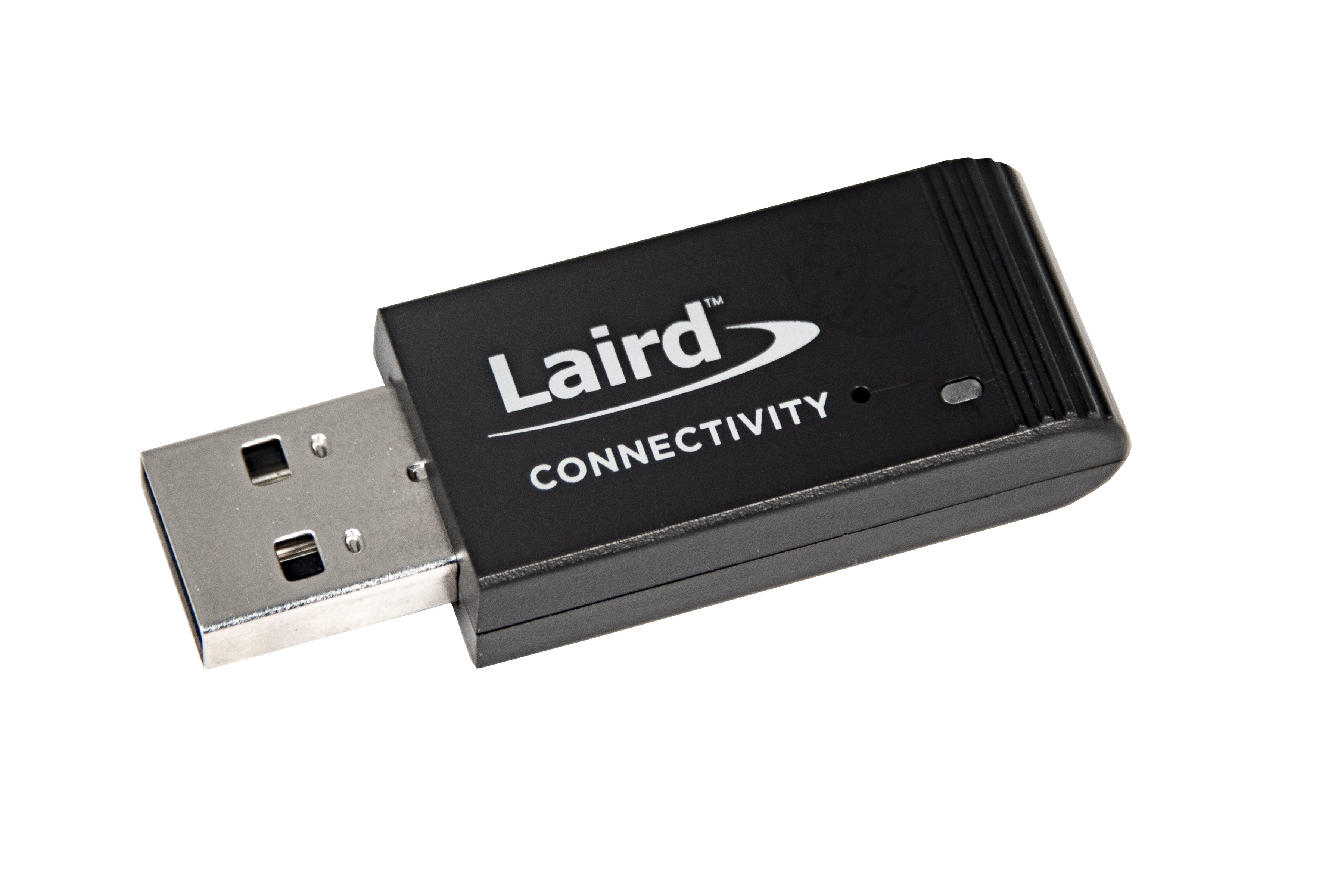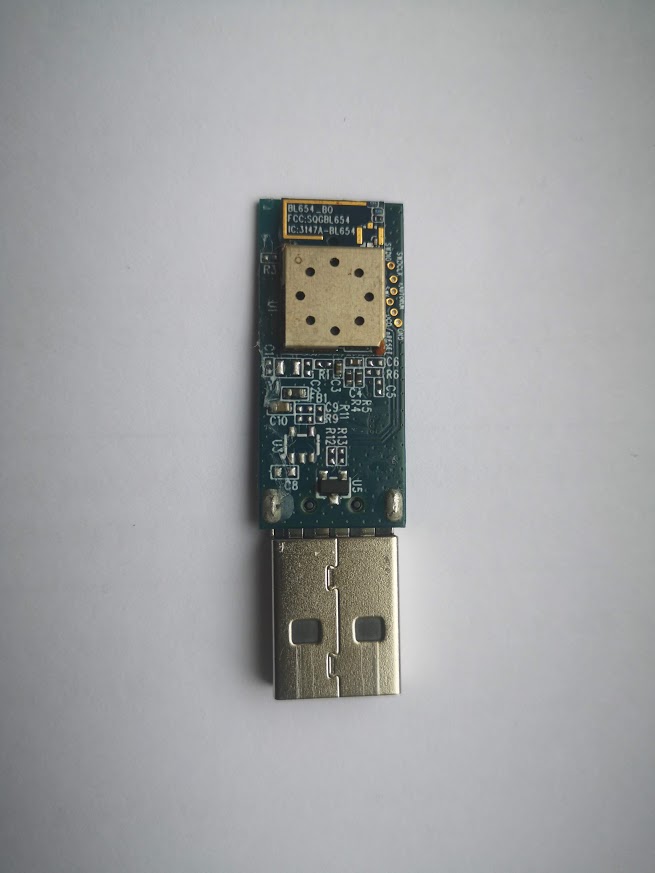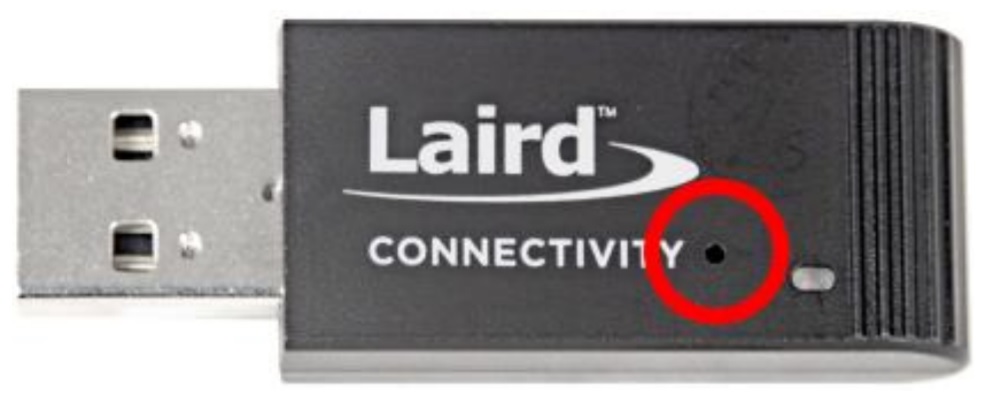If you need urgent consulting help click here
Laird Connectivity BL654 USB (451-00004)
Overview
The BL654 USB adapter hardware (Laird Connectivity part 451-00004) provides support for the Laird Connectivity BL654 module powered by a Nordic Semiconductor nRF52840 ARM Cortex-M4F CPU.
This USB adapter has the following features:
CLOCK
FLASH
GPIO
MPU
NVIC
PWM
RADIO (Bluetooth Low Energy and 802.15.4)
USB
WDT
RTC

Fig. 82 BL654 USB Adapter

Fig. 83 BL654 USB Adapter PCB
More information about the BL654 USB adapter can be found on the BL654 USB Dongle Quick Start Guide 1. There is more information on the BL654 range on the BL654 website 2.
Hardware
Supported Features
The BL654 USB board configuration supports the following hardware features:
Interface |
Controller |
Driver/Component |
|---|---|---|
CLOCK |
on-chip |
clock_control |
FLASH |
on-chip |
flash |
GPIO |
on-chip |
gpio |
MPU |
on-chip |
arch/arm |
NVIC |
on-chip |
arch/arm |
PWM |
on-chip |
pwm |
RADIO |
on-chip |
Bluetooth, ieee802154 |
RTC |
on-chip |
system clock |
USB |
on-chip |
usb |
WDT |
on-chip |
watchdog |
Other hardware features have not been enabled yet for this board. See BL654 website 2 for a complete list of BL654 USB adapter hardware features.
Serial Port
Zephyr console output is available as follows:
using the USB connector, which may be used to make the console available on PC as USB CDC class.
Programming and Debugging
Applications for the bl654_usb board configuration can be
built in the usual way (see Building an Application for more details). The
bl654_usb board cannot be used for debugging. The compatible BL654_DVK
board can be used for development. Documentation can be found at the BL654_DVK
Zephyr site 4 and boards/arm/bl654_dvk/doc/bl654_dvk.rst
Flashing
The board supports programming using the built-in bootloader.
The board is factory-programmed with a Laird Connectivity variation of Nordic’s
open bootloader from Nordic’s nRF5x SDK. With this option, you’ll use
Nordic’s nrfutil 3 program to create firmware packages supported by this
bootloader and flash them to the device. Make sure nrfutil is installed
before proceeding. These instructions were tested with version 6.1.0.
With the adapter plugged in, reset the board into the bootloader by pressing the RESET button.
The push button is in a pin-hole on the logo side of the USB adapter.

The blue LED should start a fade pattern, signalling the bootloader is running.
Compile a Zephyr application; we’ll use blinky.
west build -b bl654_usb zephyr/samples/basic/blinkyPackage the application for the bootloader using
nrfutil:nrfutil pkg generate --hw-version 52 --sd-req=0x00 \ --application build/zephyr/zephyr.hex \ --application-version 1 blinky.zip
Flash it onto the board. Note
/dev/ttyACM0is for Linux; it will be something likeCOMxon Windows, and something else on macOS.nrfutil dfu usb-serial -pkg blinky.zip -p /dev/ttyACM0When this command exits, observe the blue LED on the board blinking.
Testing Bluetooth on the BL654 USB
Many of the Bluetooth examples will work on the BL654 USB. Try them out:
Testing the LED on the BL654 USB
There is a sample that allows you to test that the LED on the board is working properly with Zephyr:
You can build and flash the example to make sure Zephyr is running correctly on your board. The LED definitions can be found in boards/arm/bl654_usb/bl654_usb.dts.
